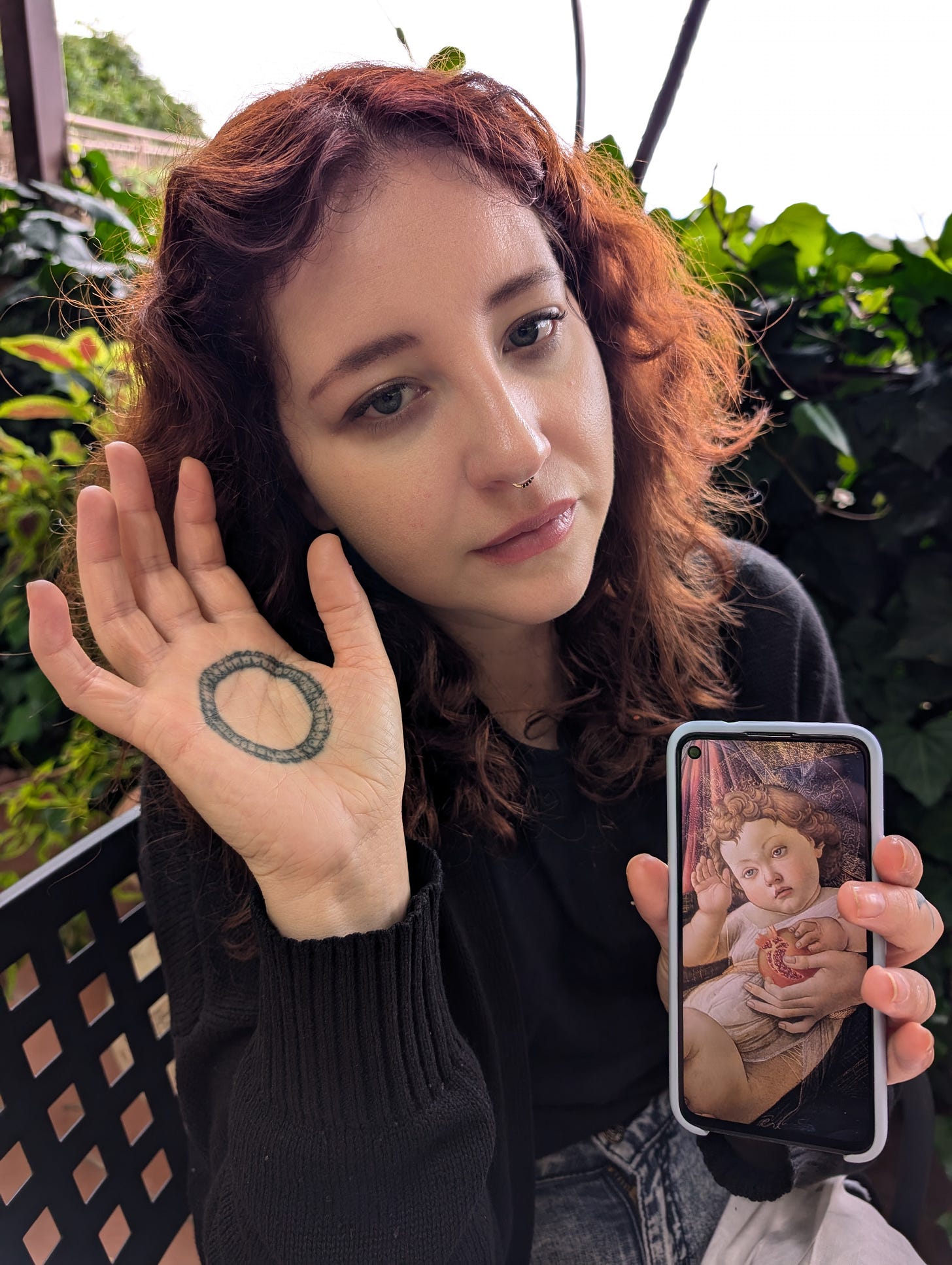
This writing is a continuation of a post I published a few weeks ago, about ending a pregnancy after developing hyperemesis gravidarum, which you can read here.
To stay current with my posts and writing, subscribe to my Substack by clicking the button below.
Part I: Old Town, Albuquerque
Three weeks after not being pregnant anymore, I found myself in the unsettlingly forceful embrace of a total stranger. She was the owner of a small retail business I had walked into, which had been empty on a hot weekday afternoon in Old Town, Albuquerque. Perhaps because of the intimacy of her small store as we stood close, talking and leaving the merchandise unbrowsed, I found myself unintentionally divulging the circumstances surrounding my recent abortion.
We hadn’t exactly clicked, although we recognized something of ourselves in each other, being around the same age, pro-Palestine, and having each married a man without the fanfare of a wedding. She used words like “hubbie” when referring to my partner and “grace” when talking about overcoming miscommunications. She exuded girl-boss culture, turning me off behind my resting active-listener face.
Before I told her about my pregnancy loss, she was triumphing her life without children, talking about how she and her “hubbie” could go to Michelin-star restaurants whenever they felt like it.
Then she paused and asked, “Do you have children?”
Her question seemed to imply: Do you want to have kids? So I answered her by relating the whole ambivalent story, watching as her confused expression softened into dutiful sympathy.
When I finished, she responded by launching into a tale about a friend who caved to social pressure and tried to have children. The friend had fertility issues and was contemplating IVF, which this girl boss presumably talked her out of.
She seemed to be trying to talk me out of my desire to have a child, too, insisting that my life would be fuller and richer, financially and otherwise, if I didn’t.
The shopkeeper spoke to me as if I had never considered the advantages of remaining childless. Until talking with her, I was under the impression that we all think life is better without children, celebrating the declining birth rate in an overpopulated world.
I thought we all couldn’t afford children on top of housing and preparing for medical debt and retirement (haha, not really). Most of us don’t even have the time to raise kids when we hustle with multiple gigs to pay bills. And aren’t we all scared of surviving into a future with unstoppable climate change?
Wasn’t she overstating how pro-children millennials and younger generations are? Doesn’t everyone want that life of anytime, Michelin-star restaurant dining while telling babies to shut up when they cry and ruin the experience? Why was she making herself out to be such a radical because of her clichéd bourgeois desires?
I’m not posing this question with a disparaging tone. I’m not above the avocado toast and oatmilk latte diet. I have always begrudged my interpolation as a selfie-taking, nostalgic-for-the-90s cringe millennial (who obnoxiously needs to specify that I was born in 1985, so I was fully conscious during the 90s).
Maybe I am living in a bubble of like-minded people recommended to me through Meta’s algorithm because, as the girl boss talked at me, I couldn’t help but assume that the only way we had been fed such different discourses was through dissimilar social media experiences.
Everywhere I look, people my age post pictures of their pets in baby clothes, announcing: “This is the picture I send my mom when she asks me when she can expect a grandbaby.” Or, I see pregnant people and parents lamenting how, despite contributing new citizens to the nation, they condemn JD Vance’s pro-natalist agenda.
Was the shopkeeper’s social circle, virtual or otherwise, full of conservative Christians? I couldn’t think of another non-Boomer group that might still believe that young adult women are brainwashed to be baby crazy and family-oriented.
“Are you in therapy?” she asked.
I shook my head “no” before I had time to count the advantages of lying to her.
When she wrote down some resources for me to find a therapist, I know she wasn’t implying that I was a wannabe Stepford trad wife who needed reprogramming. However, it felt like she was insinuating that.
I also know she wasn’t shooing me out of her store with the Psychology Today therapist directory website scribbled on a post-it note. However, it felt as if she was saying, “This is clearly a private story that should only be shared with a licensed professional.”
I didn’t want to end our conversation so quickly. I wanted her to understand that I got pregnant despite feeling socially pressured to remain childless. I wanted to deliberate on the concerns she raised through a more complex lens.
I was also searching for someone to witness my travails.
Shouldn’t we all be willing to share and witness one another’s most difficult accounts of ourselves? How else can we expect to develop empathy and “grace” and confront the idea that injustice done to one is injustice done to all? What are we on this planet for if not to learn about these things?
The shopkeeper was only willing to go as far as a shared experience and understanding of oppression with me. The irony was that, leading up to this conversation-ending topic, she applauded herself for inviting conversations with the unlike-minded, which included Trump supporters and IDF soldiers.
Maybe because she recognized me as a near-like-minded person—assuming that there was only one path to resolving my problem (killing my desire for a baby)—she decided it was unnecessary to “hold as much space” for me.
Because I don’t want to share my story, solely and surreptitiously, with a licensed professional, I’m continuing to share it with all of you. I’m pitching it into the chaos of a supportive and critical audience because the silence and secrecy surrounding pregnancy loss damage everyone. The ignorance of it estranges us from one another and causes people who experience this kind of bereavement to feel alone, even though our pain and frustration would be annoyingly tired if we were louder about it.
Additionally, I think we are reluctant to hear and bear witness to this subthread of trauma because we don’t want to make others uncomfortable with our stories, especially ones about female reproductive organs.
I’m not sure that I made the girl boss uncomfortable as much as she was eager to find a way to commandeer the conversation, keeping us focused on a topic she had plenty to say about. Either way, she deprived herself of seeing something from a different angle.
I gave the shopkeeper the microphone that day, and now I would like to go deeper, forcing you to bear witness.
Part II: The Irony that Total-Abortion-Ban Alabama is the HQ of HG
A body that looks like it should contain a uterus and ovaries not only comes with the social expectation to reproduce life; it also bestows on me the burden of feeling like there is something wrong with me if I cannot physically carry a baby to term, whether I want children or not. Under this line of thinking, if there is something “wrong” with my reproductive organs, I’m not living up to my full, able-bodied potential, even if I otherwise move through the world like any other “normal” person.
To clarify, there is nothing wrong with my reproductive organs. I wasn’t born without a uterus, with narrow fallopian tubes, with a penis (and, yes, I need to clarify in this stupid transphobic environment that women can be born with penises), or anything like that, and I can’t speak to the points of other kinds of fertility challenges such as co-parenting with another female or a person with different reproductive issues. My organs and my partner’s work really well, allowing me to get pregnant when I wanted to be pregnant.
Yet, the fact that I have the gene for hyperemesis gravidarum, which doesn’t allow me to stay pregnant—and that I don’t inhabit a world that has developed a way to let me remain comfortably pregnant—is still gnawing at me. It seems like such a small hurdle to find a way not to be sick during a pregnancy, even if it isn’t.
Additionally, something in my competitive, perfectionist nature compels me to find a solution. I feel driven to do what seemingly every other healthy woman can do, naturally and without breaking a sweat.
Isn’t that how pregnant people are always depicted—pregnant without breaking a sweat unless in actual labor? I can’t read a book or watch a television now without putting a microscopic lens on the depiction of pregnant people. Where is the puke? The fatigue? The bloating and swelling? The bursting bladder? The tender breasts? The head and backaches? The anxiety? The depression? The physical, emotional, and financial stresses that come with IVF? The bleeding and all of the blood?
Thinking about all of the blood: Although I hated the body horror film The Substance (2024) because I thought it was trite and sexist even as it was trying to challenge Hollywood’s sexist tropes, I’ve liked it a lot more while thinking about it as a metaphor for mothering. In the film, Demi Moore plays Elizabeth Sparkle, an aging actress who goes to grotesque lengths to find the limelight again by sharing her life with a beautiful parasite named Sue (Margaret Qualley). Looking at this plot as an allegory that directly confronts all of the blood and gore of pregnancy and childbirth, the film has given me a text worth pondering.
I know that many people experience mild pregnancy symptoms and even love being pregnant. However, mainstream cultural production would have us believing that this experience is the only one: smugly rubbing a big belly while eating pickles and ice cream. By comparison, Elizabeth Sparkle’s vomit-inducing anti-ASMR consumption of French cuisine with burst blood vessels in her eyes as she takes revenge on the ungrateful and greedy Sue, who drains her life force, becomes a more darkly satisfying and cathartic representation of pregnancy.
Despite the body horrors of pregnancy, some of which I’ve had a painful introduction to, I can’t stop obsessing about finding a “right” way to do it. My body has never prevented me from getting something I wanted. Now that it has, I feel betrayed by it and vengeful enough to want to push it further. At the same time, I want to be recognized and praised for my efforts.
This self-destructive storyline doesn’t heed the cautionary tale embedded in The Substance, showing how Elisabeth Sparkle and Sue craved visibility for their talents and the beauty of their bodies so badly that they found themselves monstrously fused together as Elisa-Sue before being entirely consumed by their shared vanity.
For me, entertaining the thought of getting pregnant again definitely smacks of something egotistical and deadly.
Additionally, I can’t know if any subsequent pregnancies will also plague me with HG. The chances are high that they will, and it seems like a pretty substantial risk to take, getting pregnant again only to repeat getting sick, depressed, and forced to terminate what would, under different circumstances, be a healthy and successful pregnancy. Why would I put myself and a collection of proliferating cells through that once more?
Contemplating these things, I reached out to a medical scientist, Marlena Fezjo, who, after experiencing HG herself, began studying it. She discovered the GDF15 gene that predisposes people to the condition and developed a hypothesis that the drug Metformin, which raises levels of GDF15 and desensitizes women to it before pregnancy, might help. Although clinical trials based on her work exist in the UK and Australia, Fezjo told me that she was denied funding to test her hypothesis in the US.
Dr. Fezjo also steered me to a Facebook group she is not affiliated with. On the group’s page, many of the members share that they realized they had HG in their previous pregnancies and have now found doctors who prescribe them Metformin, which they typically take two to six months before trying to conceive again. They talk about feeling sick on the drug, especially as they increase their dosages. Those who got pregnant after testing this Metformin hypothesis talk about being sick during their pregnancies, but with milder symptoms and no vomiting.
Many of these people are also seeing Dr. Housholder, who works with Dr. Fezjo and leads the HG and Morning Sickness Clinic in Alabama. However, the hoops I’d have to jump through to receive out-of-state consultations from Dr. Housholder, as well as the cost, are deterring me a bit from pursuing this avenue.
So, how do I find a doctor in my city who might specialize in HG and would prescribe Metformin to me? It shouldn’t be hard, but after trying to find providers in my network and waiting for what felt like forever to get approved for treatments and medications during my first, brief pregnancies, I don’t feel like I have any firmer grasp on how to successfully navigate the US healthcare system. The only thing I know is: Don’t ever go to the emergency room unless you might actually die.
Is getting pregnant again even a route I want to take? Being sick for months while preparing to get pregnant and then being sick for months while being pregnant, even if the symptoms are milder, doesn’t exactly sound appealing.
Domestic adoption is certainly a consideration, although not foreign adoption, not with all the stories about women in countries like Korea being coerced into giving up their children.
I’m also hesitant to adopt a child with a different ethnicity from my husband and me. For instance, I waver to adopt a Black child in this country, whether domestic or not, because I wouldn’t be fully able to connect them to and make them feel welcome in the Black US and diasporic community.
Is there something unethical in only feeling capable of raising a child who looks like me and my partner? In asking this question, am I exposing myself as unfit to become an adoptive parent?
I would argue not. Maybe if I were British or in a country where everyone, no matter their genetic background, is forced to act like white Europeans, it would seem less complicated to raise a non-white child.1
As soon as my mind swings to other options like adoption, it swings back to this idea that it would be so much easier to “simply” have a baby from my own body, a baby I don’t have to justify as anything but mine.
This unshakeable thought—that I also have to prove to myself and others that I, too, can have a healthy pregnancy—is so interesting because I’ve always feared pregnancy and have even more reason to fear it now.
For me, it’s not so much the fear of delivery and the pain of that experience, it’s the fear of the whole package: of having something grow inside me, erasing the boundaries between myself and someone else and then losing my identity completely as that someone else becomes the most important character in my story (again, this is reminding me of the plot of The Substance).
I’m afraid of going through hormonal changes that alter my body forever, peeing every time I sneeze, and hemorrhaging and needing blood transfusions. After all, I couldn’t even handle all the lab work I was asked to do while pregnant.
I’m afraid of raising a sociopath like Curtis Yarvin, who became a techno-monarchy bro even though his parents were socialists. And I’m really afraid of bringing someone into this world who may have no hope of thriving under capitalism, denied, like we all are, of following their passions, remaining forever unrecognized for their talents and value.
Despite all of these risks, women, older and less healthy and privileged than myself, give birth all of the time. Their children also find ways to endure and thrive. These kids grow up to change the dystopian course of history, voting for Muslim socialists like Zohran Mamdani.
I know each generation places an unfair burden of hope onto the next one as we expect our successors to make the world we helped fuck up better. Unfortunately, I retain this rainbowy optimism, too.
Shouldn’t I be able to confirm, like the women whose lives and bodies don’t radically change after pregnancy, that I can do all of this as well; that my body is an exceptional example of motherhood and womanhood; that I am that stereotypical, complacent belly-rubber with strange food cravings?
I want to prove that I am up for this challenge, that I might be a Sarah Connor whose progeny will help defeat AI-fueled capitalist militarism, but I also know how ridiculous this sounds. Somewhere in the rational part of my brain, I know I am not proving anything to anyone by going through with another pregnancy. I might even kill myself trying to do it.
Part III: Summertime in Guatemala and Italy
I was thinking about what my body can and can’t do a couple of weeks after I ended my pregnancy. I had decided to regain my strength and teach myself to eat again, like a recovering anorexic, by taking a vacation. So, instead of finding a therapist like the girl boss would suggest a couple of weeks later, I asked my husband to take me to Guatemala.
It didn’t take long for me to rediscover a fondness for coffee in the best place for it, something I gave up months ago as I was trying to increase my fertility and praying to avoid another miscarriage. At that time, I was also checking skin care products for vitamin E and retinol, taking CoQ10, abstaining from alcohol . . . doing all of the right things because I still believed I had control over my body and what it could do.
It also didn’t take long for me to recover my appetite, living on a diet of vegetarian desayunos tipicos—a breakfast plate of fried plantains, black beans, cheese, crema, chirmol (a tomato stew), and a corn tortilla (fluffy and hand-pressed, not squashed thin by a tortilla press like Mexican tortillas).
After breakfast, I would put on a swimsuit to sit by the resort’s infinity pool, overlooking the volcanoes surrounding Lake Atitlán.
Before going out of my room, I’d turn to regard my rear end in the mirror.
When you hear of someone losing twenty pounds in our weight-obsessed culture, you can’t help but think they will look more svelte. Yet, my dramatic weight loss didn’t come with litheness; it made my butt droop, thighs jiggle, and calves and underarms slack after muscle atrophy. Ghostly stretch marks scar my inner thighs. My stomach has remained an inflamed pooch, an obstinate mirage of a burgeoning baby bump.
I’ve deemed my ass a “sad butt,” which my husband politely refutes. But I’m not worried about losing his admiration; I’m worried about my inability to recognize and appreciate my own body as I have always known it, with a happy, toned butt.
But then again, I never admired my ass much before my pregnancy. Maybe this is just what my aging butt looks like. Maybe I am misremembering how happy my butt was before HG. Maybe my butt was only happy when I was in my twenties.
Outside in the warm, humid seventy-five-degree weather, I’d dip a toe in the pool. Unlike the pesticide- and fertilizer-filled lake, it was safe for me to swim in this water. Two weeks out from my procedure, though, I still felt like my body was made of something dissolvable, like sugar.
After my first pregnancy loss, I found myself in Italy, contemplating pregnant women and mothers in Rome, who distracted me from the ancient grandeur of the Colosseum. I hadn’t planned on flying to Italy to escape dealing with a pregnancy loss. It had been a pre-planned trip that I never imagined would become intertwined with the memory of cramping and bleeding and fearing what might come next for me in my journey to get pregnant.
Nine months later (how ironic in the Alanis Morissette sense), in Guatemala, also cramping and bleeding and filled with grief and uncertainty, I thought about being in Italy. One day, arriving at the small Atitlán lake town of San Marcos—known as the bohemian spot where white people flock for yoga and metaphysical retreats—a boy waited for us on the dock to welcome us to his hometown. It wasn’t clear if he wanted to practice his English or make some money by offering us a tour. Regardless, he made me imagine myself as Katharine Hepburn in David Lean’s Summertime (1955), which further beckoned me to conflate my trips to Italy and Guatemala.
Hepburn, in her late forties at the time, played a character named Jane Hudson, who travels to Venice for a lonely summer vacation, people-watching in the Piazzo San Marco. As soon as she arrives, a child named Mauro appears at her side, returning over and over again like a pestering guardian angel to lead her through the city and cajole her for spare change and cigarettes.
In the piazzo-less San Marcos, this Mauro-like boy and I didn’t have a chance to play out any melodramatic roles. Instead, my husband and I briskly, even rudely, brushed past him, too eager to find a bathroom.
After seating ourselves in a cafe with a street urchin cat curled up in my lap, I kept contemplating Summertime, how Jane Hudson, a middle-aged, childless woman, never allowed herself to love because she couldn’t find an ideal romance, unadulterated by adultery; unsullied by ambivalence. She was a woman who felt like love was trying to swindle her, to break her heart before she consented to it, and so, she defensively lashed out at anyone who tried to woo her.
While I’m not a single, middle-aged female tourist weary of adult passion like Jane Hudson, I know something of her anxiety about aging before fulfilling obligations of normative womanhood, especially motherhood.
Jane Hudson also strikes me as a woman who always considered herself young until she found herself in a context that amplified how past her prime she is—too old for romance and adventure, too old for children and family.
Perhaps like this character, at least the way I’m projecting myself onto her, I’ve always thought of myself as closer to being a girl than a woman, and, to this end, having plenty of time to figure out the direction my life will take.
Trying to get pregnant has made me feel closer to my age, or to whatever we collectively imagine a woman pushing forty to look and act like. Pinning down what someone in her forties looks and acts like is complicated because we are now living longer and aging more slowly, forcing new interpretations of what “middle-aged” means.
At any rate, I started feeling like I no longer have time to plan out my future, at least in terms of having children.
During our second night in Guatemala, a Salvadorian man at a bar in Antigua ventured to guess my age. I had been smiling into his face, ready to surprise him with the knowledge that I am at least a decade away from his estimate, but he didn’t let me gloat. He told me I looked exactly my age: thirty-nine. My face fell, and I imagined my wrinkles exaggerately drooping with it.
For the rest of my vacation, I settled into being perceived as an almost-forty-something woman who has finally exceeded the youthful veneer of being in her twenties and thirties. I realized I am now legible as one of those women who decided not to have children, “decided” being the key word, because, as far as common assumptions go, all healthy women of a certain age hold that power.
Part IV: Love in the Time of COVID
As fixated as I am on representations of pregnancy in popular media, I am equally aware of pregnant people and parents in public spaces. I look at pregnant people now and wonder how unnatural or awful it might feel for them. I scrutinize their faces for nausea, pain, and fatigue. I know that if they are experiencing these things, they are doing everything they can to conceal them, as if showing such discomfort is shameful.
It’s not jealousy that draws my eye to kids and moms in public spaces—it’s a curiosity. We live in a world where fertility rates are in flux, especially plunging among people of European descent, which is why ethnonationalist, pro-natalist white supremacy movements are also on the rise. And yet, everywhere I go, whether in places with the lowest fertility rates (as in Italy) or the highest (Guatemala has the highest fertility rate in Central America), the world seems to be writhing with fecundity.
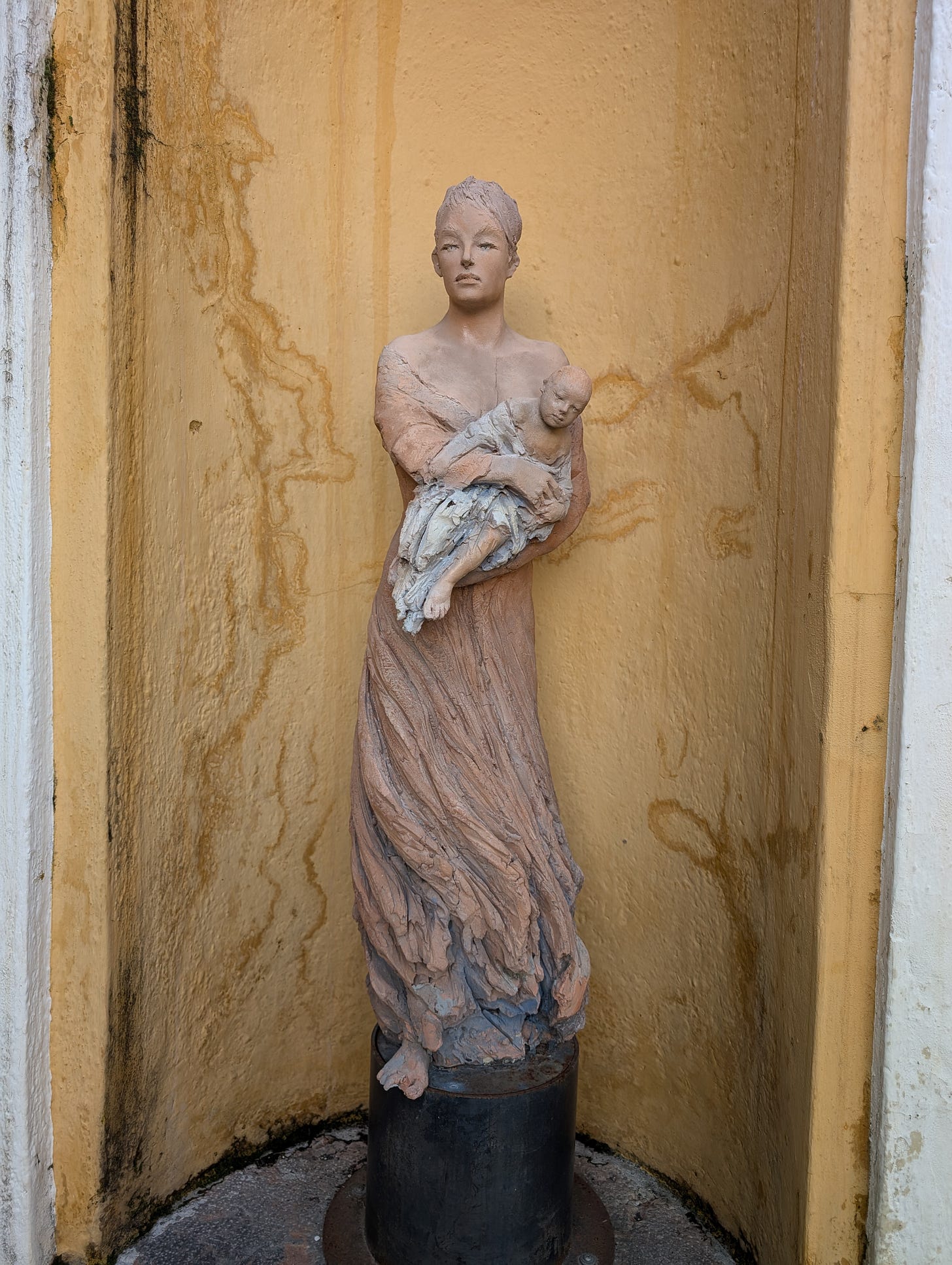
In one of the colonial churches in Guatemala, I looked at the excessively plump Virgin Mary figures and wondered if God also plagued her with adverse pregnancy symptoms. I wouldn’t put it past God—that neglectful, dead-beat dad who created his son to be a martyr. I could easily imagine him thanking his baby mama by making her suffer in a way that made her realize that she was carrying something holier than Man.
Now I’m thinking about Rosemary’s Baby . . . I won’t go too far down this rabbit hole, but this film offers another depiction of being pregnant with something that threatens your physical existence and sense of self. Getting ready to deliver Satan’s baby strikes me as a different, apt metaphor for what pregnancy looks and feels like for many women.
On the plane ride back to the US, I was aware of how annoyed I was to be seated next to a cluster of crying children. Why am I still guilty of judging people who travel with loud, small humans? It’s not as if they should sequester themselves—I wouldn’t stop traveling if I had a baby.
My irrational annoyance made me consider how I will continue to be punished by new and various social pressures if I ever become a parent. On the one hand, under the “be fruitful and multiply” heteronormative dogma, new parents have selflessly done what they are supposed to do. On the other hand, when their children have meltdowns, we feel burdened by the selfish choice they made. We think: They should know how to emotionally regulate their children if they want to continue to lead public lives.
A little girl sat quietly in front of me, wrapped in a blanket covered with cartoon characters. She didn’t make a peep for the whole flight. As we deplaned, she threw up in the middle of the aisle and started crying.
I wasn’t annoyed with her. Instead, an alien, maternal feeling of wanting to comfort her flooded me. It wasn’t a deep-seated instinct ramping up as my biological clock winds down; it was a yearning to hold my inner child, remembering what it was like to be in this little girl’s shoes.
Less than a week later, we installed a new swamp cooler in our home. It smelled funny, and I started having respiratory issues that I imagined were a response to this plastic-smelling device.
On a hunch, I took a COVID-19 test, and it was positive. I thought about the little girl on the plane and wished I had worn the face mask I had packed. Even children that aren’t growing inside of me seem to make me sick (I’m darkly jk-ing).
Five years after COVID-19 made the world shut down, I got the virus for the first time.
Four weeks after having a sense of smell and taste so powerful it made me vomit even when there was nothing inside of me to vomit up, I lost all sense of smell and taste.
It was wonderful. I put two scoops of a normally bitter green vegetable powder in my morning yogurt and tasted nothing. I hydrated and nourished myself—a power I lost while suffering with HG.
It is a completely absurd thing to say, but I found having COVID-19 empowering. It forced me to rest and take care of myself, reassuring me that if I did, I would be well again.
One week after my positive COVID-19 test, my sense of taste and smell returned. I knew it when I lay down on the couch and smelled the cat pee that didn’t come out of a throw pillow I had sprayed down with vinegar before I got sick. I sprayed it with vinegar again, taking in the sourness without feeling under- or over-stimulated, and felt surprisingly hopeful about my future.
I need to clarify that I am not saying that the British are race blind. In fact, I think racism is harder to talk and think about in a place like England because the colonial project of cultural assimilation worked too well.






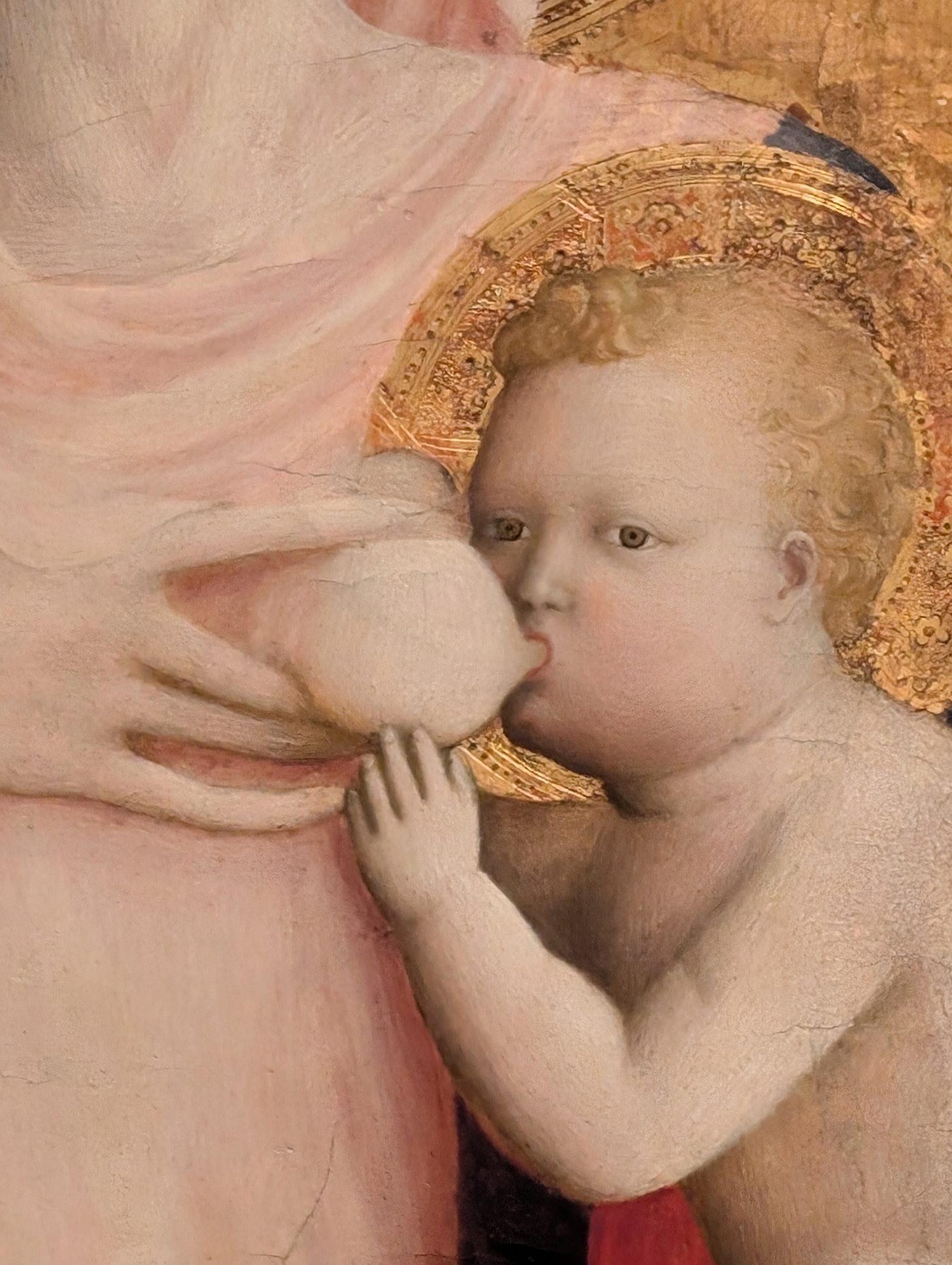


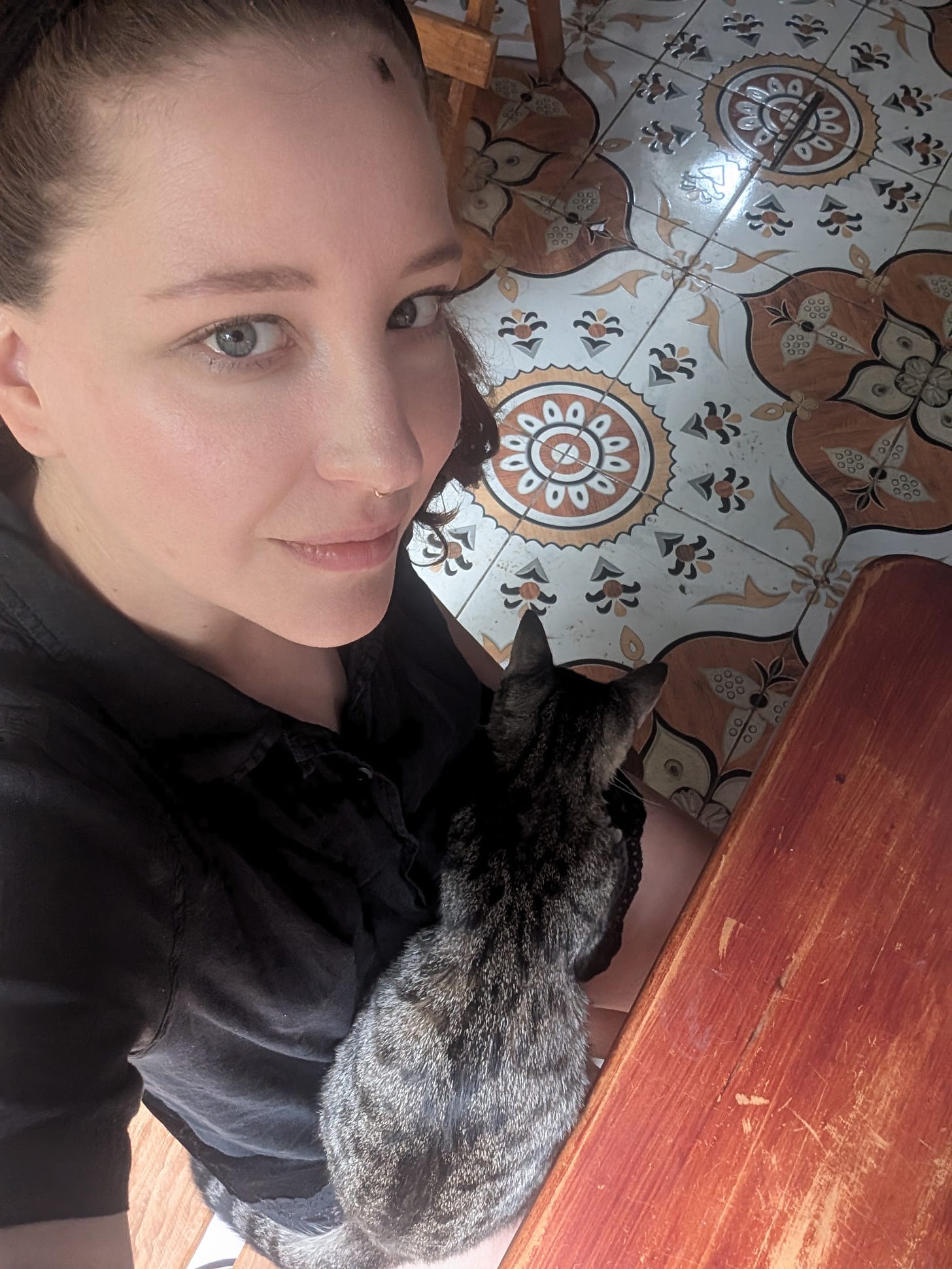
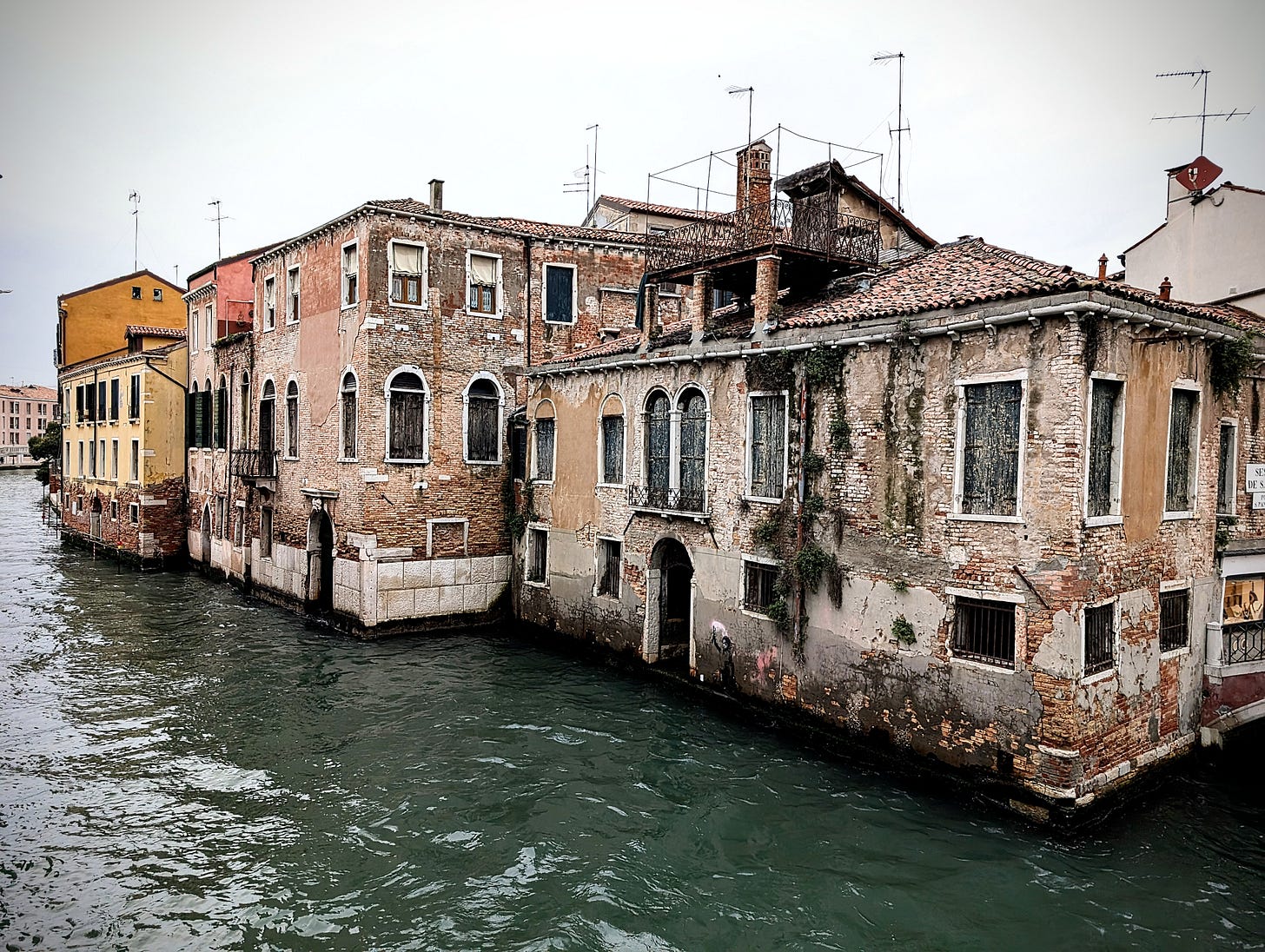
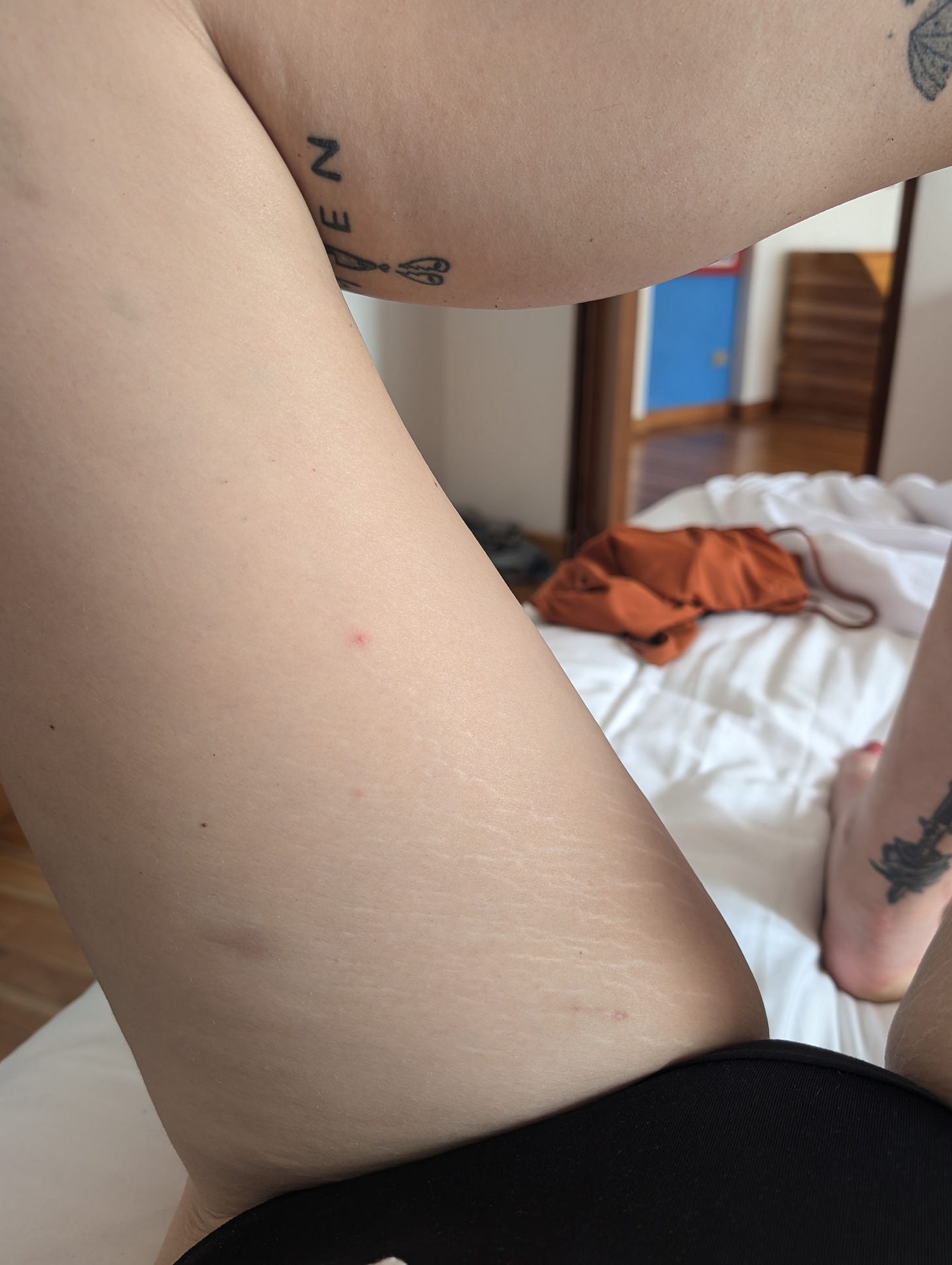
you are one of my favorite writers of all time 💕